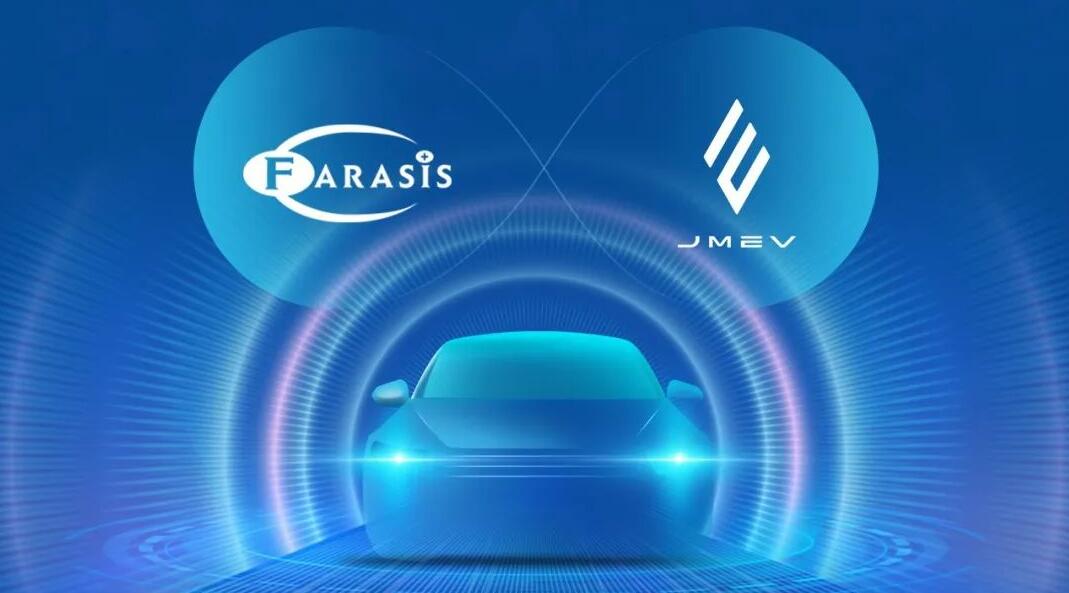Farasis Energy is working on adapting a sodium-ion battery with a JMEV model that will be available in 2023.

Farasis Energy has become the latest Chinese power battery manufacturer to reveal progress on the development of sodium-ion batteries, as discussions about the new batteries have increased significantly in the past two months.
Farasis Energy recently entered into a partnership with JMEV, a subsidiary of Jiangling Motors Group, in which the two will initiate pre-research work on the adaptation of sodium-ion batteries for the latter's EV3 model, according to a press release from the battery maker yesterday.
Under JMEV's production and sales plan, vehicles with sodium-ion batteries will go on sale in 2023, Farasis Energy said.
JMEV is currently selling the EV3, a compact, all-electric vehicle with a CLTC range of 301 km and a starting price of RMB 69,800 ($10,000).
(JMEV's EV3)
The adaptation of sodium-ion batteries based on this model indicates that the basic performance of Farasis Energy's sodium-ion battery system meets automotive standards, the company said.
Sodium-ion batteries have lower raw material costs than lithium-ion batteries, will cost significantly less in mass production, and also have a cost advantage over current lithium iron phosphate (LFP) batteries, Farasis Energy said.
At the same time, the safety, energy density and charge/discharge rate of sodium-ion batteries are comparable to those of LFP batteries, and the low-temperature discharge performance is better than the latter.
Sodium-ion batteries can operate normally in the temperature range of -40°C to 80°C, with capacity retention close to 90 percent at -20°C, according to Farasis Energy.
Farasis Energy is one of the largest manufacturers of power batteries in China and a major player in soft-pack batteries.
The company installed 0.39 GWh of power batteries in China in November, ranking 9th with a 1.13 percent share, according to data released earlier this month by the China Automotive Battery Innovation Alliance (CABIA).
China's largest battery maker, CATL, unveiled its first-generation sodium-ion battery on July 29, 2021, allowing the new battery to start receiving more attention.
On November 29 this year, CATL research institute vice president Huang Qisen said at a forum that for passenger car applications, sodium-ion batteries can generally meet the needs of models with a range of up to 400 kilometers.
With its pioneering AB battery system integration technology, CATL has achieved a mix of sodium ion and lithium ion, allowing them to complement each other to increase the energy density of the battery system, Huang said.
This approach allows sodium-ion batteries to be expected to support electric vehicle models with a range of up to 500 kilometers, he said, adding that models with that range account for 65 percent of the market share, meaning that the use of sodium-ion batteries is promising.
On the same day as Huang's presentation, sodium-ion battery manufacturer Hina Battery's GWh-class sodium-ion battery line saw its first product rollout.
Hina Battery's current sodium-ion battery has an energy density of 145 Wh/kg and cycle life of 4,500, information on its official website shows.
On November 30, local automotive media Yiche reported that BYD's new all-electric compact car Seagull, currently undergoing road testing, will likely be its first model to carry sodium-ion batteries, with a launch date expected for the second quarter of 2023.
The BYD Seagull will be offered in both sodium-ion and lithium-ion battery-equipped versions, with the former expected to be priced as low as RMB 60,000 and the latter expected to be RMB 80,000, the report said.
Become A CnEVPost Member
Become a member of CnEVPost for an ad-free reading experience and support us in producing more quality content.
Already a member? Sign in here.


